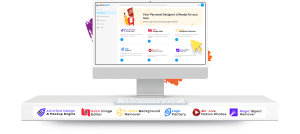“Unlock the Power of Big Data for Smarter Marketing Decisions.”
Introduction
Big data has become an essential tool for businesses to optimize their marketing strategies. With the vast amount of data available, companies can gain valuable insights into consumer behavior, preferences, and trends. By analyzing this data, businesses can make informed decisions about their marketing campaigns, target the right audience, and improve their overall ROI. In this article, we will explore how to use big data to optimize your marketing strategy and stay ahead of the competition.
5 Ways to Utilize Big Data for a More Effective Marketing Strategy
In today’s digital age, data is king. With the rise of big data, businesses have access to more information than ever before. This data can be used to optimize marketing strategies and drive business growth. However, many businesses struggle to effectively utilize big data. In this article, we will explore five ways to utilize big data for a more effective marketing strategy.
[content-egg module=AmazonNoApi template=item]
1. Personalization
One of the most significant benefits of big data is the ability to personalize marketing efforts. By analyzing customer data, businesses can gain insights into their preferences, behaviors, and needs. This information can be used to create personalized marketing campaigns that resonate with individual customers.
Personalization can take many forms, from targeted email campaigns to personalized product recommendations. By tailoring marketing efforts to individual customers, businesses can increase engagement and drive sales.
2. Predictive Analytics
Predictive analytics is another powerful tool for optimizing marketing strategies. By analyzing historical data, businesses can predict future trends and behaviors. This information can be used to create targeted marketing campaigns that are more likely to resonate with customers.
For example, a business might use predictive analytics to identify customers who are most likely to make a purchase. They can then create targeted marketing campaigns that are designed to appeal to these customers, increasing the likelihood of a sale.
3. Customer Segmentation
Customer segmentation is the process of dividing customers into groups based on shared characteristics. By segmenting customers, businesses can create targeted marketing campaigns that are tailored to each group’s unique needs and preferences.
For example, a business might segment customers based on their age, gender, or location. They can then create marketing campaigns that are designed to appeal to each group’s unique characteristics. This can increase engagement and drive sales by creating more relevant marketing messages.
4. Social Media Monitoring
Social media monitoring is another powerful tool for optimizing marketing strategies. By monitoring social media channels, businesses can gain insights into customer sentiment and behavior. This information can be used to create targeted marketing campaigns that resonate with customers.
For example, a business might monitor social media channels to identify customers who are discussing their products or services. They can then create targeted marketing campaigns that are designed to appeal to these customers, increasing the likelihood of a sale.
5. A/B Testing
A/B testing is the process of testing two different versions of a marketing campaign to see which one performs better. By using big data to analyze the results of A/B testing, businesses can optimize their marketing strategies for maximum effectiveness.
For example, a business might create two different versions of an email campaign and send them to a small group of customers. They can then use big data to analyze the results and determine which version performed better. They can then use this information to optimize future marketing campaigns for maximum effectiveness.
In conclusion, big data is a powerful tool for optimizing marketing strategies. By utilizing personalization, predictive analytics, customer segmentation, social media monitoring, and A/B testing, businesses can create more effective marketing campaigns that resonate with customers and drive business growth. With the right tools and strategies, big data can be a game-changer for businesses of all sizes.
Conclusion
Conclusion: To optimize your marketing strategy using big data, you need to collect and analyze data from various sources, including social media, website analytics, customer feedback, and sales data. Use this data to identify patterns, trends, and insights that can help you make informed decisions about your marketing campaigns. By leveraging big data, you can create more targeted and personalized marketing messages that resonate with your audience, improve customer engagement, and drive better business results.


























